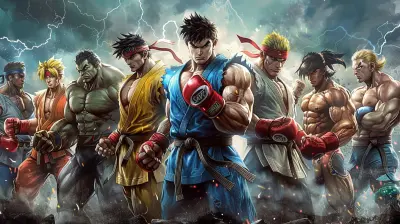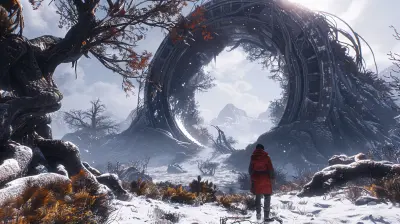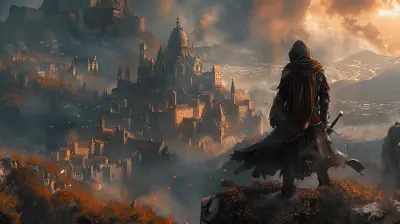Why Deck-Building Games Hook Players for Hours
2 October 2025
If you’ve ever found yourself glued to the table, scouring for the perfect card to play, you’ve probably experienced the undeniable magic of deck-building games. These games are more than just clever mechanics slapped onto cardboard—they’re strategic puzzles, deeply immersive experiences, and, quite frankly, some of the most addicting games out there. But why do they hook players for hours on end? Let’s dive in and unravel the mystery behind this tabletop obsession. 
What Are Deck-Building Games?
Let’s start with the basics. If you're scratching your head wondering, “What’s a deck-building game?” don’t worry—I’ve got your back. A deck-building game is a type of card game where players start with a small, basic deck of cards and gradually acquire more powerful cards as the game progresses. Think of it like building a dream team, but instead of athletes or characters, you're assembling the ultimate set of cards to outwit your opponents or conquer challenges.Popular examples in this genre include Dominion, the granddaddy of deck-building games, and modern hits like Star Realms, Clank!, and Arctic Scavengers. The beauty is, every game feels fresh because you’re building your deck—your strategy, your way. 
Why Deck-Building Games Are So Addictive
1. The Thrill of Customization
Who doesn’t like a game where they’re in control? One reason deck-building games grip players is because they let you customize your strategy. Each card you add to your deck feels like a deliberate choice. It’s like crafting your own secret weapon from scratch!Want to dominate with brute force? Stack up on attack cards. Prefer playing the long game? Go for cards that generate resources. Feeling sneaky? Throw in some sabotage cards to mess with your opponents. The possibilities are endless, and because of that, each time you play, your deck is a reflection of your style.
It’s like personalizing a playlist—you decide the vibe, the rhythm, and, ultimately, the outcome. And let’s be honest, who isn’t a sucker for a little creative control?
2. The Sense of Progression
You know that satisfying feeling when you level up in a video game? Deck-building games capture that same energy. You start small, usually with a handful of weak cards that barely achieve anything. But as the game progresses, you start acquiring stronger ones, comboing them together into a powerhouse deck.Each turn feels like a step forward. You’re not just playing cards; you’re growing stronger, smarter, and more strategic with every decision. And when you hit that sweet spot where your deck is firing on all cylinders? Whew, it feels like pure magic!
This progression is what keeps players hooked. You’re constantly striving to build something better, more efficient, and knocking out those satisfying combos feels like hitting a jackpot at a casino—minus the financial regret.
3. Unpredictability Keeps Things Fresh
No two games are ever the same. Why? Because deck-building games thrive on unpredictability. The cards available to you, your opponents’ strategies, and even the order your cards are drawn all shift with each session.This randomness keeps you on your toes. You can’t rest on a single strategy every time you play. Instead, you have to adapt, think creatively, and find new ways to succeed. It’s part of what makes every match feel like a puzzle worth solving.
It’s a bit like life, isn’t it? You can plan all you want, but sometimes the universe throws you a curveball. And just like in deck-building games, you learn to work with it—or, better yet, turn it into your advantage.
4. Tight Gameplay Loops You Can’t Quit
The best deck-building games are designed with tight gameplay loops. What does that mean? Well, you’re constantly doing things that feel rewarding. Every turn gives you a chance to buy a card, play powerful combos, or disrupt your foes. There’s virtually no downtime, so you’re always engaged.Even when it’s not your turn, you’re strategizing. What’s my next move? What cards do I need? How do I counter what the other players are doing? The constant engagement makes it hard to stop playing because there’s always something to think about.
It’s like binge-watching your favorite TV series. You tell yourself, “Just one more episode,” but before you know it, it’s 3 a.m., and you’re still glued to the screen. Deck-building games have that same addictive pull.
5. Deck-Building Scratches the “Collector” Itch
You know that primal urge to collect shiny things? Whether it’s Pokémon cards, stamps, or even rare artifacts in video games, humans love to collect. Deck-building games tap into that irresistible itch.Every time you buy a new card or add something powerful to your deck, it feels like unlocking treasure. And since the cards themselves often feature gorgeous artwork or fascinating abilities, it’s easy to get caught up in the excitement of growing your collection.
It’s like being a kid in a candy store—every card feels like another tasty treat you just have to add to your stash. 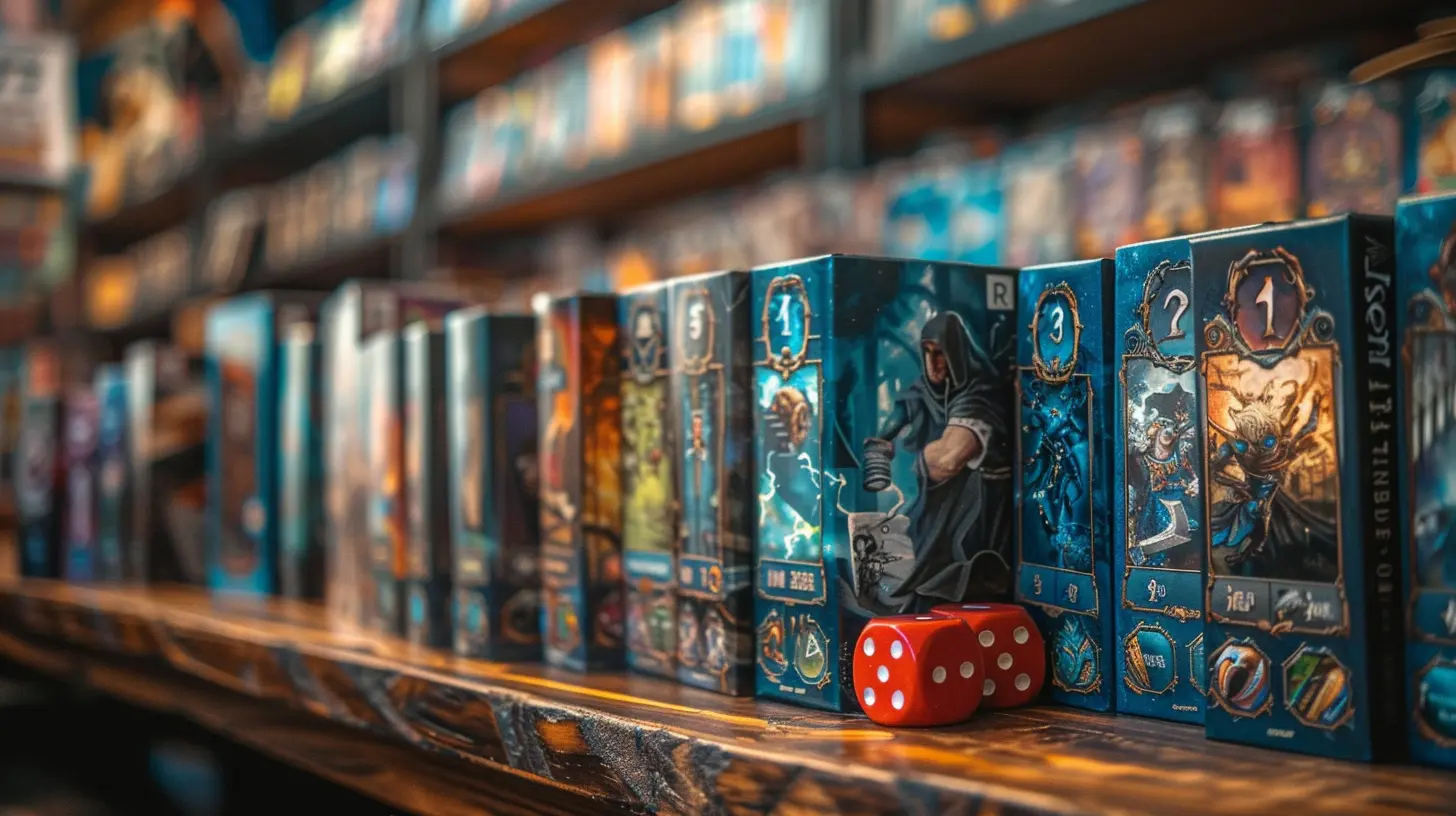
How Deck-Building Games Create Replayability
The genius of deck-building games is how they keep you coming back for more. Let’s break this down.Variety in Card Pools
Most deck-building games come with a large pool of cards, but you only use a subset in each game. This means the available cards—and thus, the strategies—change every time you play. It ensures no two games feel the same.Multiple Paths to Victory
Unlike some games where there’s one obvious winning strategy, deck-building games typically offer several ways to succeed. Whether you’re hoarding points, sabotaging others, or focusing on synergies, there’s always room to experiment.Expansions and Add-Ons
If the base game isn’t enough, expansions often add fresh mechanics, new cards, and extra layers of depth. It’s like adding new toppings to your favorite pizza—familiar, yet excitingly different!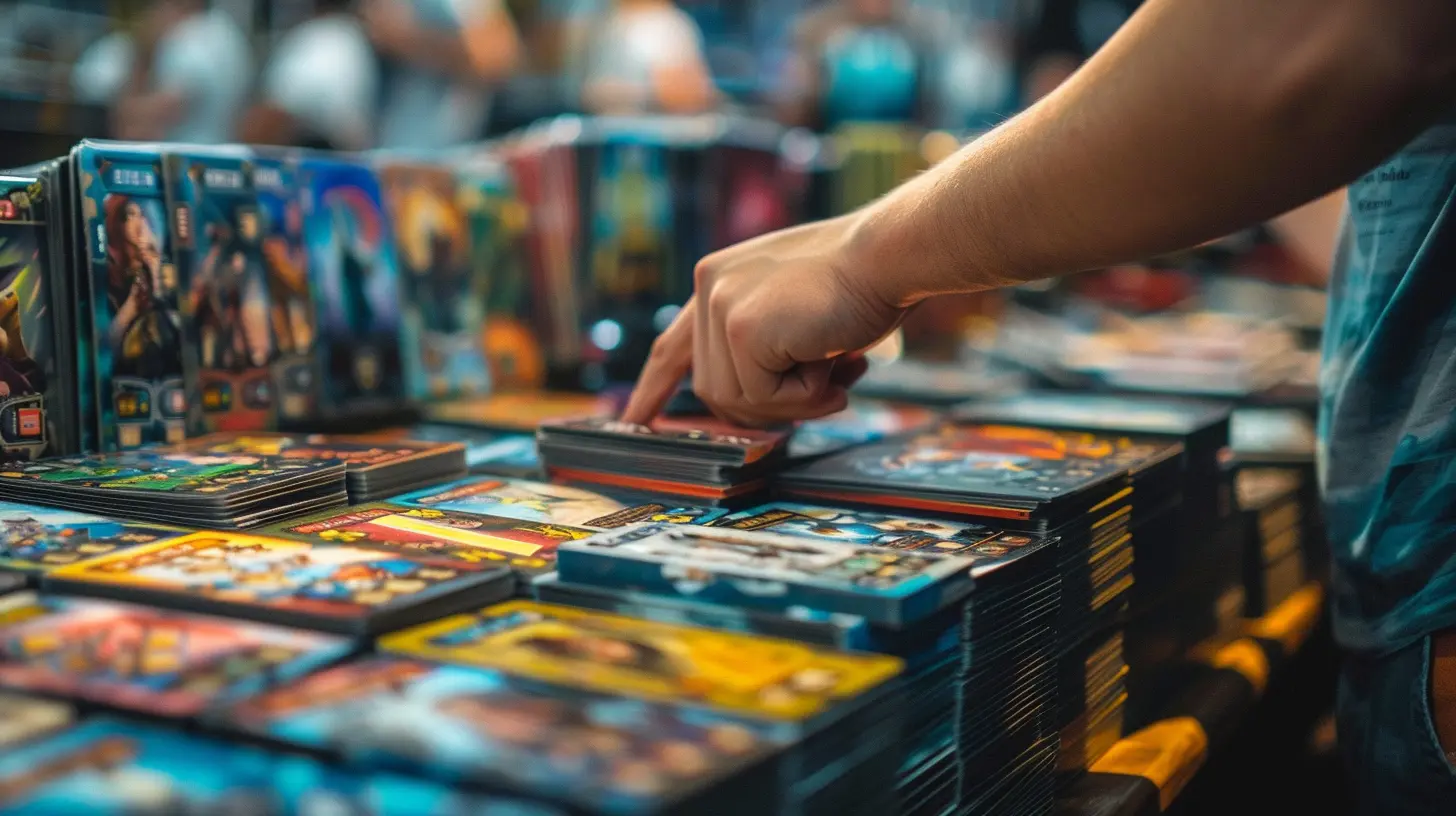
Why They Work for All Types of Gamers
Another reason deck-building games have universal appeal is that they cater to a wide range of players. Whether you’re a casual gamer just looking for a fun evening or a hardcore strategist craving complex decision-making, these games have something for everyone.Love competitive play? You can turn these games into cutthroat battles. Prefer cooperating with friends? Many deck-building games have co-op or solo modes too. This flexibility makes them an instant hit in any gaming group.
The Social Element: Fun with Friends
Let’s not forget the social factor. From trash-talking your friends to teaming up against a common foe, deck-building games create memorable shared experiences. They’re not just about the cards—they’re about the people at the table.Think about it: How many times have you laughed over a ridiculous card play or groaned at your friend's perfect combo? Those moments stick with you, turning deck-building games into more than just games—they become stories you tell later.
Conclusion
So, why do deck-building games hook players for hours? It boils down to a perfect cocktail of customization, progression, unpredictability, and social interaction. These games scratch our itch for strategy, creativity, and a dash of chaos, all while keeping us engaged with tight gameplay loops and endless replay value.If you haven’t dived into the world of deck-builders yet, what are you waiting for? Pick one up, and prepare to lose track of time—it’s a rabbit hole you won’t regret falling into.
all images in this post were generated using AI tools
Category:
Tabletop GamesAuthor:

Leandro Banks
Discussion
rate this article
1 comments
Cynthia Wade
Deck-building games captivate by blending strategy and chance, fostering a unique sense of agency and progression. Each shuffle becomes a new opportunity, drawing players into endless possibilities.
October 10, 2025 at 3:27 AM

Leandro Banks
Thank you! You've captured the essence of deck-building games beautifully. Their blend of strategy and chance truly creates a captivating experience that keeps players engaged.
